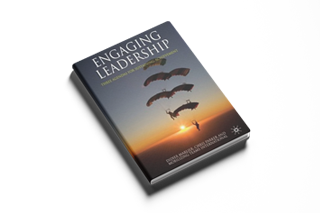 Those amongst you who know me, will confirm that I am a pessimistic idealist. I made mine the title of Intel founder’s book, Andy Grove: “Only the Paranoids Survive”… I nevertheless started the year 2023 with reasons to hope.
Those amongst you who know me, will confirm that I am a pessimistic idealist. I made mine the title of Intel founder’s book, Andy Grove: “Only the Paranoids Survive”… I nevertheless started the year 2023 with reasons to hope.
One of the biggest question that we, leaders of the Disruption Economy face, is whether or not we are ready to profoundly challenge the way we will rebuild the Economy and the World: Will we desperately seek to go back to the old model, after a face-lift and a lot of Green/Diversity/ESG washing or, worse a cynical manipulation as Dow is accused to have committed (see “Dow promised to turn sneakers into playground surfaces, then dumped them in Indonesia”) or will we be clever, visionary and courageous enough to redefine the notions of Economy (what it is and what it should achieve), Work (what is a job, what is employment), Nations (are they about Bonding against a common enemy or intending to be responsible global actors) etc.?
The Covid crisis has profoundly shaken the World, from Afghanistan to Zimbabwe, and it is my belief that, just like May 1968 (in France) did not shift the mindsets, culture and society in… June 1968, but along the following years, the same will apply to the Covid shockwave.
I already wrote on the Great Resignation and the Silent Quitting, both challenging the conventional beliefs on job holders. KPMG just came behind and confirmed that one out of three Z Generation people rejected an offer in the recent years, on poor ESG performance ground of the company offering them a job. One of the (very few) benefit from the rushed European boycott on the Russian oil and gas, has finally shaken us from our unforgivable lack of vision and dependency on fossil fuels (it is since the 70’s oil shock that we should be developing green alternatives!)
Observing the 2023 good wishes messages on LinkedIn (if that is indicative of anything), I was amazed by the number of business leaders aiming at challenging the status quo, working towards creating a new fairer and sustainable Economy. All of these messages carry the hope that a tidal wave has launched and will, this time, be positive, constructive and aim at building a better World.
When I see the “sacred cows of the old Economy” (the untouchable consultancies) being now questioned, yes, I start to believe that change may be underway. In a strong interview with the Financial Times (“The McKinseys and the Deloittes have no expertise in the areas that they’re advising in”), Economist and Professor Mariana Mazzucato takes aim at large consultancies for “infantilising the civil service by depriving our brightest people of opportunities to work on some of the most challenging, fulfilling and crunchy issues!” Thinking further, are the large consultancies who spent decades shaping up such an unsustainable Economy, credible when it comes to challenging the very base of their belief system and advise clients in the Disruption Economy? The famous quote of Albert Einstein, “No problem can be solved from the same level of consciousness that created it”, strongly resonates here.
Last Friday, I had the chance to welcome in Geneva, half of our Community of coleaders, in the Enablers Network. How do we differ from traditional consultancies was a theme explored with much interest. The simple way to explain it, brought us back to the now famous “Cynefin Framework” originating from Dave Snowden, the Welsh Psychologist. Simplifying and interpretating it for those who wouldn’t know the model, it describes for contexts within which we need to lead:
- Simple Context: happens when the relationship from cause to consequence is known, clear and mastered (i.e. we know how and why the cause mutates into a consequence). Leading in such a context requires that the people who know, clearly voice the what (objectives) and the how (rules, roles, procedures) and control its execution. This is found in many industrial, clerical sorts of jobs, for instance.
- Complicated Context: is when we can predict that a given cause will give birth to a specific and expected consequence but the black box between the two (how the cause transforms into the wanted consequence) is complicated to understand and requires the help of specialists should it derail or need to be improved. And this is precisely where traditional consultancies act. Clients become hostages (as they believe they don’t know, need help and are convinced that only consultants can bring it) and traditional consultancies excel at creating and maintaining that sort of dependency and “addiction”. But, that is now being challenged by the powerful emergence of the third and fourth context…
- Complex Context: Here, the predictable links between cause and effect disappear… Sometimes a given cause may produce several unwanted consequences or no one knows which cause is behind a given consequence. It is the realm of trial and error, exploration, questioning and observation, A place for humility. This is where Content Leaders (those who base their licence to operate on their knowledge and the fact of presenting themselves as experts) stall and lose their credibility. This is the context of leading, yes, but leading when I don’t know and admit it.
- Chaos Context: In a Chaotic context we see the (often dramatic) consequences, without being able to identify the cause, to start with. It often takes a courageous and decisive (if not heroic) stand from a leader to limit the chaos and seek to understand its causes.
- Confusion Context: takes place when… no one knows what happens but everyone “feels the heat”…
We identified that our edge is to accompany leaders who understand that their environment is migrating from a “Simple and Complicated” context towards a “Complex and Chaotic” one and wish to avoid the “Confusion box” as a result. People like us don’t pretend to be consultants, the best way to describe us exists in German: “Belgleiter” or those who accompany. Credible advisers in the Disruption Economy will depart from an arrogant posture, pretending to know and will humbly behave as intellectual, behavioural and emotional “sparring partners” of their clients.
And this is how I believe that Change will start to happen.
Enjoy your Complex and Chaotic Leadership Journey and avoid the Confusion trap!



This nonsense must end!!! Green/Diversity/ESG washing